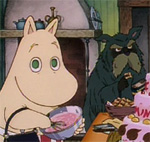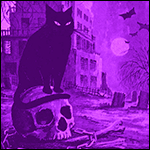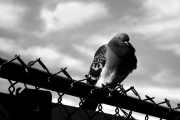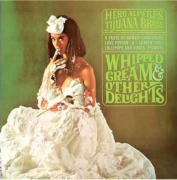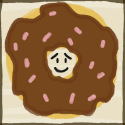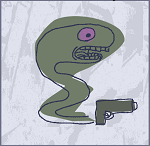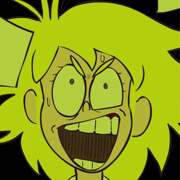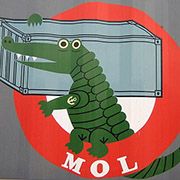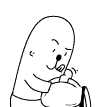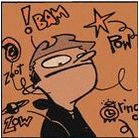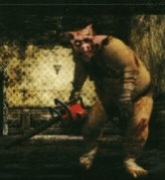|
FreelanceSocialist posted:Just finished Stories of Your Life and Others by Ted Chiang. It's a collection of his short stories/novellas from 1990 onward, including the one that ultimately became the movie Arrival. That was the biggest reason I picked up this collection. Ted Chiang owns. The Merchant and the Alchemist's Gate is my favorite time travel story ever. He has such an effortless and imaginative style and I'm surprised I don't hear much about him from other science fiction fans.
|
|
|
|

|
| # ? May 15, 2024 07:05 |
|
FreelanceSocialist posted:I will say that I had always sort of felt that short stories/novellas couldn't really compare to full-length novels. I don't know why I felt that way. I blame having to read anthologies of mediocre crap when I was in gradeschool, I guess? Anyway, this collection changed my view. I can't comment on whether or not there's been some sort of improvement in the world of short story anthologies, but I can say that I feel like I got my money's worth out of the two Year's Best Science Fiction anthologies that I bought, edited by Gardner Dozois. They were six bucks each at my local bookstore and even though it's hit or miss, the highs are high and the lows can be skipped. I am for sure going to be buying anthologies from now on, it's nice having curated short fiction that you can pick away from a diverse set of authors. Tea Party Crasher fucked around with this message at 02:38 on Dec 23, 2022 |
|
|
Tea Party Crasher posted:Ted Chiang owns. The Merchant and the Alchemist's Gate is my favorite time travel story ever. He has such an effortless and imaginative style and I'm surprised I don't hear much about him from other science fiction fans. e: recently finished: Kill Anything That Moves: The Real American War in Vietnam and its so loving sad I don't really want to talk about it haha.
|
|
|
|
|
It'd be pretty hard for his rep to grow because he's already pretty much the number one speculative short story writer in the world in esteem.
|
|
|
|
I decided to round out the year (lacklustre, I read fewer books than I have in years) by eating up a bunch of classic novellas. So I read Of Mice and Men, The Old Man and the Sea, The Metamorphosis, and now The Curious Case of Dr. Jekyll and Mr. Hyde. I believe each of these are pretty much perfect in their own ways, lots to chomp on for symbolism and commentary and so on. I'm going to keep reading more because I feel like I'm getting a lot out of these right now: Of Mice and Men: I was surprised at how theatrical and funny Steinbeck is in the first two acts of this, though of course the third act is about brutal tragedy. As always, I loved his dignified treatment of working class men. Interestingly, we have a lot of Steinbeck's takes on racism here as well, since one of the perspective characters is Black. I think I'd recommend it for that chapter alone. The Old Man and the Sea: I haven't read very much Hemingway, pretty much just Hills Like White Elephants in high school. I have seen the movie adaptation as well. This was the weakest of this batch for me, but mostly because I don't really care about the type of struggle being depicted here anymore. The old man is old and proud and his victory turns to ash. The Metamorphosis: Here I expected an indictment of bureaucracy and technocrats and some magical realism. What I got was a shockingly current exploration of disability, family, and normalcy. The protagonist gets turned into a real actual cockroach and his family deals with it in various archetypal ways (the father: denial leading to violence, the mother: grief and erasure, the sister: rising to the occasion leading to resentment and violence). Having been reduced to a kind of bug-like existence myself because I refuse to pretend COVID doesn't exist, I was captivated and loved this book. The Curious Case of Dr. Jekyll and Mr. Hyde: An absolute riot of Victorian sci-fi horror, the least literary of this group. If you haven't read this one, you really should give it a go since it's extremely influential in the genre and readable. I believe I'll use this in an Outschool course I might build next year.
|
|
|
|
|
I just finished Borne by Jeff Vandermeer last night, and he has earned a way back into my heart after Authority disappointed me. The world building, as usual, was excellent, and it makes sense that Vandermeer would want to explore biotech and humans altering nature rather than the other way around like in Annihilation. The kinds of biotech and their applications were always creative and added a lot of intrigue to the world- battle beetles, medical worms, fireplace slugs, and the rest bring a lot of character to the rote task of survival. Plus it brings up the question of how deep and pervasive human influence over the natural world is, and our anthrocentric view that anything and everything can be broken down into a resource meant to be used towards our ends, even the base elements of life itself. (Not to mention the fabric of time and space itself) Borne, the endlessy transforming blob monster, is given a lot of emotional depth despite having an alien nature to him that makes it difficult for him to identify with humans completely. The sort of twisted paternal relationship he has with the main character Rachel is well thought out and endearing, which I would argue is the core appeal of the book. If you are somebody who loves to immerse yourself in a strange setting, or loves dystopian/ post-apocalyptic stories, I'd highly recommend it. You are thrown right into the deep end, and the beautiful lyrical writing does a great job of communicating the ecstasy found in small moments of happiness, as well as the numbing long scale depression of surviving day to day. tuyop posted:
Easily one of the greatest stories about being disabled ever written. Over the past 3 years I've developed a chronic pain condition that meant I couldn't pursue the career I wanted, and moving back in with family has proven emotionally difficult for all of us. Kafka really hits all the right points; that feeling of being transformed and different from your previously capable self, the disgust and self-hate that comes from this transformation, as well as the tension that comes with your relationships being oriented around reliance rather than contribution. It's heartbreaking and unflinching and how it depicts the pressures of the world, and how exterior forces like capitalism can turn families against their own kin. That ending where his family is relieved to find him dead, and they go out for a trip downtown and bond together over it fucks me up.
|
|
|
|
The thing that really spoke to me was how his condition is immediately turned into a taboo by the family. There are all these unspeakable pressures toward eugenics even in this little family. From the jump they believe they’d be better off without him in this condition, no matter how much he cared for them when he was able. However, all notions of living well come from outside the family, they’re features of the setting. The only way back from their taboos would be to have some conversations about how their life needs to change, and that’s the source of the conflict when the sister removes the furniture. Ultimately, since the family refuses to confront reality and adapt to it, the only other path is contempt and hatred and his eventual death. The only way I would consider changing it would be to somehow show the threat of institutionalization.
|
|
|
|
|
Just finished 2666. Its good.
|
|
|
|
|
How many pages is the recounting of murders?
|
|
|
FPyat posted:How many pages is the recounting of murders? Many. That was a grueling section that left you the reader as numb as the characters living with them. Although, like in Blood Meridian, the beauty of the landscape was counterpoint to the depravity of human behaviour. I still want to know more about The Penitent though.
|
|
|
|
|
I've now finished three of the four Sea of Fertility novels by Mishima. Spring Snow is the most interesting managing to blend romance and melancholy in equal measures, the effect is capturing a feeling of the period that reflects Kyoaki's own life short and beautiful but tinged with regrets and sadness. Runaway horses manages to capture teenage angst in such a pure form the same way that Catcher in the Rye does. Not just the main characters actions are stopped, but his ideals are constantly being desecrated by the adult characters trying to look out for him. Could there be any greater insult to a revolutionary willing to die for their cause to hear that others agree with you, but their hands are simply tied and you should just grow up and moderate yourself. Temple of Dawn is quite possibly the most disgusting look at a society that I've ever seen. Honda fully transforms himself from a sidekick to a voyeur in the bombed out ruins of WWII Japan. Using his learning of Buddhism to justify his perverted tendencies. And in the post war we see a Japan that is economically recovering and morally and spiritually bankrupt beyond belief. The same prince that the Matsugae's and Ayakura's went to ruinous lengths to try to fool about the Sakoto situation is now hocking other royalties trinkets in a pawnshop. The former judge who sacrificed his position to save Isao's life now creeps parks watching young couples making love. Honda's own pathetic attempt at capturing some of the beauty of the affair Kiyoaki had is the most repulsive thing I've read. For two reasons, one the simple fact that a fat 57 year old man lusting after a 20 year old transfer student is gross, but secondly so because he enjoys the voyeuristic and humiliation of the event more than even the idea of sleeping with her. The worst part is is that this is the first chance he had at actually being able to save Kiyoaki's soul. Isao and Kiyoaki were too driven emotionally and politically for him to save them, Ying Chan however seemed just fine being a normal young lady. If he had simply given the esoteric knowledge of the Anti Snake charm to her instead of only using mysticism to further justify lusting after the unobtainable then she would have survived. I can only assume that Decay of the Angel will be even more apocalyptic in it's vision of modern Japan.
|
|
|
|
I just burned through all nine books of the Expanse series. They did a great job of maintaining long arcs while still having a suitably-contained story for each book, and I'm also impressed by how they managed to keep it from just developing into unmanageable bloat. I'm a bit sad to be done, honestly, it was quite a ride.
|
|
|
|
I just finished The Prestige, which I absolutely devoured despite having seen the movie and knowing most of the big reveals, but there is one thing I still don’t understand… why did Borden’s grandson, Andrew Westley’s father, go to Caldlow house that night? How did he know about the apparatus, and why did he let his son be thrown in the machine??
|
|
|
|
I just finished Harrow the Ninth. It was a big weird ride and I’m impatient for my partner to finish their copy so I can talk about it. Sometimes I find the author’s voices and jokes overly irreverent/glib, but man when she hits she hits hard and all is forgiven.
|
|
|
|
I read Notes from Underground by Dostoevsky. I guess I'll read Crime and Punishment sooner rather than later, because it was the most emotionally rich fiction I've read in a long while.
|
|
|
|
BadSamaritan posted:I just finished Harrow the Ninth. It was a big weird ride and I’m impatient for my partner to finish their copy so I can talk about it. Sometimes I find the author’s voices and jokes overly irreverent/glib, but man when she hits she hits hard and all is forgiven. Tamsyn Muir to me rides the line between cringe-y dialogue and snappy dialogue. The characters are different and unique enough that they don't all sound the same, but they are all very good at quippin
|
|
|
|
Convenience Store Woman was short, unsubstantial, and ultimately uninteresting. I liked the parts describing day-to-day operations at work, but it didn't add up to much.
|
|
|
|
A History of Fear. It was ... okay, I guess. I didn't buy the voice used for the main character's journal, even for a self-absorbed academic wannabe it just didn't feel right.
|
|
|
|
I read Sabbatical: A Romance by John Barth It was interesting, funny, and horny. It was nice to read a book about a relationship that is happy and healthy throughout with no forced drama of a mysterious third party. The drama is the couple figuring out how to spend their later life and next career moves. I enjoyed that, plus everything with their boat, plus everything to do with the CIA. The po-mo and meta elements were fine and not overbearing. The two main characters pretty much say "Hi, we're two fake characters in a book" and the rest of the book is them being very real and well-written human beings. I would bet my last dollar that DFW read and was inspired by this book. I noticed a lot of similar territory from Infinite Jest and Brief Interviews with Hideous Men. The bad: while recounting her sister's life and explaining one reason why she was able to endure torture in political prison, the book has a 5 page sequence detailing a woman being repeatedly r*p*d in one day by multiple parties. The Painted Bird and Whores for Gloria are two books in which I read a page and immediately thought "I wish I could delete this from my brain" and this book had 5 pages in a row of that. A real shame too because this is otherwise an engaging and sometimes sweet book.
|
|
|
|
Gaius Marius posted:I can only assume that Decay of the Angel will be even more apocalyptic in it's vision of modern Japan. Decay of the Angel gets a lot of criticism for feeling rushed. Which is valid considering what Mishima had planned in his personal life: Plan A: Raid JDF barracks and hopefully said action will kick off Reactionary overthrow of Japanese government. Should this not inspire the masses to rise up Plan B: Kill myself in ritual seppuku. He had a lot on his mind besides ending the series on a high note.
|
|
|
|
Another true crime book full of prurient details, It’s not my fault Ed Gein was so drat interesting! If you have a choice about whether to read Have You Heard What Eddie Gein Done? by Harold Schecter and Eric Powell, or Deviant by just Harold Schechter, choose Have You Seen What Eddie Gein Done?. The brief section about Ed Gein’s hypothetical anthropological and religious beliefs are deeply hosed us and fascinating. Did you know priests in precolumbian Mexico wore the skin of their victims, and nobody acted like that was weird? They’re very similar books, which I guess isn’t a surprise since Harold Schechter wrote most of both of them.
|
|
|
|
rich thick and creamy posted:Decay of the Angel gets a lot of criticism for feeling rushed. Which is valid considering what Mishima had planned in his personal life: The ending itself is some of the most beautiful and transcendent writing I've seen. But the idea that it lacks some connective tissue is true, but even what's there is great. Honda rotting morally and literally as he ages, decaying from someone who'd give up a judgeship to someone who hopes to take an orphan under his wings only to siphon off what youthful energy he can and watch him die. Keiko destroying Toru at the party, forcing him to realize that no matter how much abuse he throws at Honda, he will either die at twenty letting Honda get that satisfaction once again, or live on which will only confirm his status as "nonspecial". Even some of the smaller bits like coke machines being everywhere, and Keiko becoming so far astray from her own nation's culture that she more resembles a tourist than an Elderly Japanese woman of means. If you asked me to rank them I'd put Decay above Temple easily, that novel while good slipped far too often into meandering melodrama.
|
|
|
|
Finished my first book of the year, My Sister The Serial Killer. It's short and breezy and more ominous-slice-of-life than crime drama as I was expecting. A lot of understatement that lets the mind go to nasty places that the prose doesn't. Not much resolution to speak of, though I liked the ending, I think. Does she decide to keep enabling her sister out of a sense of duty? A sense that justice is being done, to make up for the sexual and physical violence inflicted by their father? Or is she just resigned to her fate and discarding the hope for her own future? Pretty grim, and I liked it overall.
|
|
|
|
I just finished Schuss by E. J. Noyes. It's sort of a follow-up on one of her other novels called Gold, and it's set a few years after - so in that sense it also functions as closure for that book. The story itself is a rather simple love story - two people who've already met have become good friends, but it turns out they're both pining for each other secretly, because they fear they'll ruin their friendship if they do anything else. It's an exceptionally sweet story, and I liked how the characters communicate with each other, because there are some other romance stories where you just want to shake the characters and yell at them to communicate with each other. This book also happens to have something that's all too rare, which is a sex scene that demonstrates how explicit consent can not just be worked into foreplay, without ruining the mood. It's also quite realistic in its portrayal of the sex, and yet manages to be so hot that I actually had to fan myself with my hand - which is a big change from most other novels, which are sexy in the sense that they show how some things could be fun to try with a partner in real-life, but don't really do anything beyond that. It's also got what I'd say is an acceptable and believable amount of drama - it's not like other books where the author just keeps piling on the drama in the name of creating angst. The only thing I'd say is a bit of a let down is that the story feels like it ends too quickly, because there's no real epilogue in the book. That's not really enough for me to not thoroughly recommend it, so if you're into romance stories that happen to involve same-sex couples, I can't emphasize how much it's worth giving a try.
|
|
|
|
|
I read The Mirror of the Sea by Joseph Conrad, his nonfiction work where he says everything he has to say about sailing, the sea, ships, and what the maritime world means to him. A must-read for everyone with an age of sail fixation. He bemoans that the steam engine is creating a world where sailors feel no deep connection with the wind and weather.
|
|
|
|
Things Fall Apart by Chinua Achebe. This one's pretty famous and influential, so I'll just say that I admired how naturally the story shifted focus from Okonkwo's dysfunctional hyper-masculinity to the insidious carrot-and-stick approach that white colonizers used to gain power over his people.
|
|
|
|
remigious posted:I just finished The Prestige, which I absolutely devoured despite having seen the movie and knowing most of the big reveals, but there is one thing I still don’t understand… why did Borden’s grandson, Andrew Westley’s father, go to Caldlow house that night? How did he know about the apparatus, and why did he let his son be thrown in the machine?? Ahh I read that book ages ago! Meant to read it again last year but mostly skimmed it…IIRC the implication is that the two families’ feud has continued beyond Angier’s “death” and they’re still fighting over how the trick was done? And Andrew’s father was hard up for money or something. I thought Andrew’s father intended to enter the apparatus himself (to prove it was fake and that Angier’s had stolen Borden’s trick, thus owed him money?), chickened out, and then Katherine’s father pushed Andrew in? Honestly my main memory of that book is the ending, where it suddenly turns into a horror story. It was so delightfully creepy when Andrew realizes Angiers is still “alive” in the crypt, and Angiers turns off the generator. Just finished I’m Glad My Mom Died on audiobook by Jeannette McCurdy. It’s…very intense. The first 2/3rds are about her life with her mother and moves pretty fast. The last 3rd follows her life after her mother’s death, her self-medicating through EDs and alcoholism until recognizing the abuse she suffered, and her path to recovery. She narrates her own audiobook and her voice for the last third sounds so flat and deflated. It makes the material feel even sadder. She does a really good job displaying her eagerness to please & pacify her mom when she was little, and the repercussions of that relationship on her personality and mental health as she aged. I’m honestly surprised at how much she remembers. Maybe it’s easier when so much of your childhood is centered around specific acting jobs/auditions.
|
|
|
|
Just finished Teatro Grottesco by Thomas Ligotti. Philosophical and psychological horror, easily my favorite of the horror genre
|
|
|
|
|
Last book finished was Galapagos by Kurt Vonnegut. Clever structure with the general Vonnegut wit. Not my favorite of his but worth reading for sure.
|
|
|
1upmuffin posted:Last book finished was Galapagos by Kurt Vonnegut. Clever structure with the general Vonnegut wit. Not my favorite of his but worth reading for sure. I liked that one. As you say not the top of his bibliography but a worthy read
|
|
|
|
|
I finished Count Zero by William Gibson, the middle book of the Sprawl trilogy. I liked it, possibly maybe a little bit more than Neuromancer. I thought it was sometimes difficult to know what was going on, which is apparently a common criticism of these two books. Easy to read in 50 page chunks but if I took a break for a couple of days, it was difficult to get back into the story. Bilirubin posted:Just finished Teatro Grottesco by Thomas Ligotti. Philosophical and psychological horror, easily my favorite of the horror genre I read this a few years ago. Not exactly fun, only somewhat enjoyable, but drat if it isn't effective. The dreamy nightmarish vibe throughout is fascinating and it sticks with me. At random, just a couple months ago, I remembered a scene from a story from the latter half, something about the narrator wanting to look back at the face of some evil doll or puppet in a top hat behind him, but he knows that no matter how much he strains, the face will keep turning away from him so the face is forever unknowable. Something about he cannot ever see the doll's face or expression. Like he knows the puppet is watching him with a big smile but if he turns his head around, the puppet also turns its head around. I can't even recall the exact details, but the writing is so disturbing. Even years later, this eerie dark haunting memory leapt out my subconscious to creep me out anew. I still have my copy, I need to dig it out.
|
|
|
|
ProperCoochie posted:I finished Count Zero by William Gibson, the middle book of the Sprawl trilogy. I liked it, possibly maybe a little bit more than Neuromancer. I thought it was sometimes difficult to know what was going on, which is apparently a common criticism of these two books. Easy to read in 50 page chunks but if I took a break for a couple of days, it was difficult to get back into the story.
|
|
|
|
The Last Unicorn The Lost Journey by Peter S. Beagle – This was the unfinished first draft of Beagle's famous story, which he wrote when he was 23. While the basics of the plot are the same as the finished version, a unicorn hears that she is the last of her kind a set out find her fellow unicorns, both the setting and many of the characters have changed. The human protagonists are absent, replaced by a two-headed demon, and the setting is more modern. I can't really judge this book since, as the title says, it's only a first draft.
|
|
|
|
The Lies of Locke Lamora by Scott Lynch: I had added this to my short list based on a response to someone else's question in the recommendation thread, and it did not disappoint. The author does a great job of world-building and getting you to love / hate the many characters introduced. I enjoyed the setup of the interludes, which would flash back to a relevant piece of the past that helps provide context for a decision or occurrence in the upcoming chapter. Locke and his associates are lovable conmen who you cheer for throughout. The book made me feel a rollercoaster of emotions, and I spent several late nights telling myself that reading the next chapter was worth the agitation I was going to feel in the morning from lack of sleep. I, personally, would have liked the world to be no-magic instead of low-magic, but maybe that's just because the author did such a great job making me abhor the one magic user you're introduced to. I'm adding the sequels to my "to read" pile for sure. Good-Natured Filth fucked around with this message at 20:03 on Jan 11, 2023 |
|
|
|
Philosophy of Sri Madhavacarya by B. N. K. Sharma. This book is about explaining the philosophical system of the 13th century Indian theologian Madhva, the creator of the Dvaita (or Tattvavada) sub-school of Vedanta, and his two most important commentators, Jayatirtha and Vyasatirtha. The author said he wrote the book with the intention of it being accessible to general readers, but his definition of general reader seems to be someone with a much greater familiarity of Sanskrit than I have. Aside from explaining the various positions of Dvaita Sharma also compares and contrasts other Indian philosophies, primarily the other major sub-schools of Vedanta but also other Hindu philosophies and sometimes Buddhism and Jainism. There were many parts that were individually interesting but I didn't have the ability to really grasp the fullness of the philosophy being explained so I may eventually come back to the book once I've read and understand more.
|
|
|
|
Alien: Bug Hunt a book of short stories in the Alien universe. A few stinkers in there, a lot that all did the same thing of "squad of Marines enter an area and discover Xenomorphs there" but there were a few really fun ones like the Corn World with clouds of locust-sized xenomorphs, the story from the Xenomorph's perspective, and the one where the uber-badass Marines stop at the entrance of the deathtrap and decide to go home
|
|
|
|
American Prometheus: The Triumph and Tragedy of J. Robert Oppenheimer by Kai Bird and Martin Sherwin A week or so before Christmas, a trailer dropped for Christopher Nolan's Oppenheimer. I would say that I'm a Nolan fan and that I think Cillian Murphy is a very talented actor so the trailer grabbed my attention. And I knew a little bit about Oppenheimer, mostly from his adjacency to a ton of legendary figures in 20th century physics. So I tracked down the book that the movie is based on because, why not? I thought I'd get a story about how smart man builds complicated thing. What I ended up with was a staggeringly well-researched deep-dive into the constellation of people and events leading up to the anti-communist hearings that vilified Oppenheimer, centered around the life of the man himself. The footnotes can practically be a book all by themselves. Verdict: If you're looking to prep ahead of the movie (nothing wrong with that) and you're interested in Oppenheimer himself and how he got swept up into the whole McCarthyism/HUAC/etc. circus, pick this one up for sure. If you're more interested in the physics behind it all, the development of the atomic bomb, etc - this probably won't have what you're looking for. It's a lot to process but it is well-written, so while it might take you some time to get through, I think that you'll find it's a pretty rewarding read. You'll come away with an appreciation for the genius of Oppenheimer, for all that he accomplished and all that he helped others accomplish, without being overwhelmed by math and science and jargon that you would figure would accompany a topic like this. Many of the individuals that were in his orbit throughout the middle of his life, up to and through Los Alamos, and into the years leading up to the hearings, have been given more attention and more "life" than you usually see in biographies. And the whole thing is just so... dense. It's so much information. Such a comprehensive timeline. And I should reiterate just how loving smart this dude was. Unbelievably smart. Probably one of the greatest minds of the 20th century. edit: I also tracked down some of the declassified documents mentioned in the book - Bob Serber's collection of lectures that was given to newly-arrived Los Alamos scientists to bring them up to speed, Oppenheimer's speech to ALAS from November 1945, The Franck Report, etc. If anyone reads the book and wants to read them as well, let me know. FreelanceSocialist fucked around with this message at 02:38 on Jan 15, 2023 |
|
|
|
East of Eden Great work, the first half with Adam and Caleb I was pretty iffy on, I didn't feel that either felt wholly like real people. Nor their father, the back half with Sam, Lee, the two boys and Abra really changed my opinion. Characters like Cyrus gain depth when Adam finally admits that his father was embezzling funds, Adam complete inability to function as a parent or to see that Kate despised him perfectly shows the folly of the idea of perfectly good people being unable to function without accepting darkness of the human soul. The character he reminds me most of in fiction is Patera Silk from Long Sun. Aron was honestly boring, you feel exactly what person he is and how he'll be broken long before he comes face to face with Kate. Caleb makes up for it by being incredibly compelling, man is Augustine walking down a road filled with Pear Trees. Lee is simply based. I coulda done without a lot of the Kate/Joe plot and some of the Hamiltonian digressions, but aside from that the novel was great.
|
|
|
|
The Girl Next Door by Jack Ketchum That was great, time to never read it again or think about it or talk about it to anybody.
|
|
|
|

|
| # ? May 15, 2024 07:05 |
|
Der nasse Fisch by Volker Kutscher. Police crime mystery set in Berlin in 1929. Nothing special, but refreshing in that the main character is a complete gently caress-up and a murderer, like all cops. They made a TV series based on the book/series called Babylon Berlin, which is also the name of the translation I read. Apparently it is/was the most expensive European television production ever. One of the quickest 588-page books I remember reading. e: I think the title means "The Wet Fish", which is what they call unsolved murder cases. I suppose that's why they didn't just translate it directly because it's not a universal idiom. 3D Megadoodoo fucked around with this message at 08:48 on Jan 24, 2023 |
|
|














